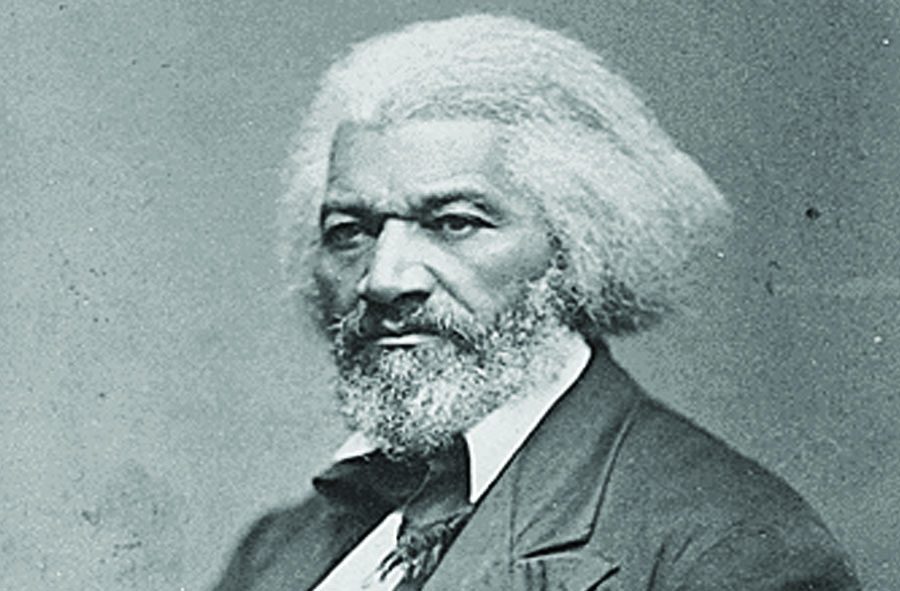3 Maryland Natives Who Forever Changed History
Photo courtesy Wikimedia Commons
Frederick Douglass became a leader of the abolitionist movement upon escaping from slavery in maryland and moving to New York.
March 29, 2019
Since 1976, February has been celebrated as Black History Month, a time used to recognize and honor the achievements of African-Americans throughout U.S. history.
Maryland has been home to some of the most influential African-Americans in history: Thurgood Marshall, Frederick Douglass and Harriet Tubman spent their lives fighting to further advance the rights of African-Americans. Reflecting on the power of Black History Month, here is a deeper look at some important figures from Maryland who have changed the world and inspired future generations.
Thurgood Marshall
Marshall was born July 2, 1908 in Baltimore, Md. and spent a lot of his youth listening to local courthouse cases as a pastime while growing up. He went on to be a lawyer, civil rights activist, Chief Counsel of the National Association for the Advancement of Colored People (NAACP) and a renowned Supreme Court Justice.
From an early age, Marshall was aware of racial injustice and strove to pursue a profession in law, seeking justice for minorities. Further into his career, Marshall won the landmark Supreme Court case, Brown v. Board of Education in 1954, declaring it unconstitutional for schools to be segregated, giving African-Americans access to equal education.
Along with this case, Marshall also won 29 out of 32 civil rights cases before the Supreme Court.
President Lyndon B. Johnson appointed Marshall to the Supreme Court in 1967 making him the 96th Justice and the first African-American to serve.
Marshall serves as an influential figure to students today because of all that he achieved, despite the obstacles he faced.
“To see that he was able to overcome the odds against him, it makes me feel like with the opportunities that I have now, I should have no excuse in pursuing my wanted profession,” freshman Joyce Onana said.
Frederick Douglass
Douglass was born Feb. 14, 1818 in Talbot, Md. and escaped slavery to become a leader in the abolitionist movement in Massachusetts and New York. Once free, Douglass traveled around the states to give speeches on abolishing slavery and published his book, “The Narrative of The Life of Frederick Douglass.”
Douglass proceeded to become a close confidant of President Abraham Lincoln, encouraging him to enforce equal pay between black and white soldiers.
“His whole life he spent fighting for equal rights, not just black people but for women and for immigrants,” English teacher Krista McKim said.
In the past, Maryland has pressured schools to avoid speaking of Douglass since he was enslaved in Talbot County, McKim said. However, this precedent has changed in recent years after Douglass and Tubman were recently granted statues in the Maryland State House January 2019.
“Maryland is definitely starting to recognize the contributions that he has brought to our state,” McKim said.
Harriet Tubman
Tubman was born Jan. 9, 1820 into slavery in Dorchester County, Md., as one of eight children.
Tubman is known to be the conductor of the Underground Railroad, where she risked her life to help slaves escape to freedom by continuously traveling back and forth from the South to the North.
Tubman’s success led slave owners to post a $40,000 reward for her capture. She was determined to rescue as many slaves as possible despite her recurring temporal lobe epilepsy caused by a traumatic head injury she sustained from her former slave owner. Tubman went on to lead over 300 slaves to freedom without getting caught.
“She was always willing to help, from assisting the Union troops during the Civil War, to helping countless slaves, and working as a nurse,” history teacher Jillian Kennedy said. “Her bravery inspired many to take the dangerous trip north. She was an integral part of anti-slavery efforts and changed the lives of many with her generosity and selflessness.”
Marshall, Douglass and Tubman, along with countless others, are celebrated today to remind everyone, but specifically students, that anything is possible with determination and passion.
“It’s important for black kids to see people that look like them be represented in such a positive light because the way that black people are sometimes portrayed, it’s not a healthy way of growing up,” Onana said. “Then you see minorities still struggle with the law, with going to school, with getting into college and getting careers. To see people that have fought so hard for them to be able to be free, it gives a sense of purpose and belonging in the community.”




